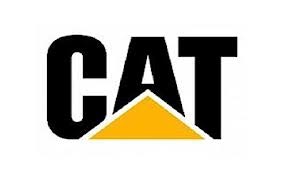The troubles being experienced by Yum! Brands, Inc. (NYSE:YUM) and Caterpillar Inc. (NYSE:CAT) with what could collectively be called deceptive business practices is a big issue to watch in China. While the story of growing along with the increasingly wealthy population is a good one, it doesn’t always work out as smoothly as expected for outsiders.
Bad Accounting
In mid-January, Caterpillar sent out a news release stating that an internal investigation had “uncovered deliberate, multi-year, coordinated accounting misconduct” at a recently acquired Chinese company. Cat fired the people responsible and put a new management team in place.

Bad Food
The problem at Yum! is related to substandard chicken from suppliers that KFC had been using. An investigation by a television station sparked a government review of KFC’s suppliers. Although Yum! hasn’t been accused of wrongdoing, the damage to the company’s image has been notable.
Management reported that January sales were down over 40% at KFC in China. That’s going to be a huge hit to the top and bottom lines. The bigger problem for Yum! is that there appears to be spillover into its other food concepts, particularly Pizza Hut, which saw a 15% revenue decline. This problem is going to be around for a little while, too, with management admitting that the only way to heal this wound is time.
Bad Employers
Apple Inc. (NASDAQ:AAPL) has even had to deal with Chinese issues. Normally seen as an upstanding citizen, Apple came face to face with a public relations nightmare when employees at one of its Chinese suppliers started to commit suicide as a way to protest the poor working conditions under which they were being forced to live and work. While Apple was relatively quick to act, and was able to maintain its corporate image as a socially sensitive company, it could have easily gone the other way.
The problem, of course, is that Apple is just hiring a company to build stuff; it has little control over how that company treats its employees. But in the eye’s of U.S. citizens, that distinction doesn’t matter. This issue came at the beginning of Apple’s most recent ascent, when investors were more willing to overlook underlying problems because of heady growth. If a similar problem were to find its way to the media today, investors may not be as forgiving.
Bad Blood
These aren’t the only companies finding the going rough, or perhaps a better word would be shady, when working with Chinese companies. For example, International Business Machines Corp. (NYSE:IBM), Pfizer Inc. (NYSE:PFE), Wal-Mart Stores, Inc. (NYSE:WMT), and Avon Products, Inc. (NYSE:AVP) are among a growing list of companies dealing with questionable business practices issues in China.
This is a big deal for many of these companies. For example, Wal-Mart has nearly 400 stores in China, a market it entered in 1996. China is a particular focus within the company’s International division. The retailer is looking to gain scale in the e-commerce space, an area it was late to in the United States. It purchased a big position in Yihaodian, a local web retailer. If problems at Yihaodian were to surface, it could be a notable blow, and meaningful delay, to the company’s online efforts in a country that it has targeted as a growth platform. While Wal-Mart, as well as Caterpillar and Yum!, clearly have the financial wherewithal to handle such problems, that doesn’t mean that these types of problems aren’t notable risks.





